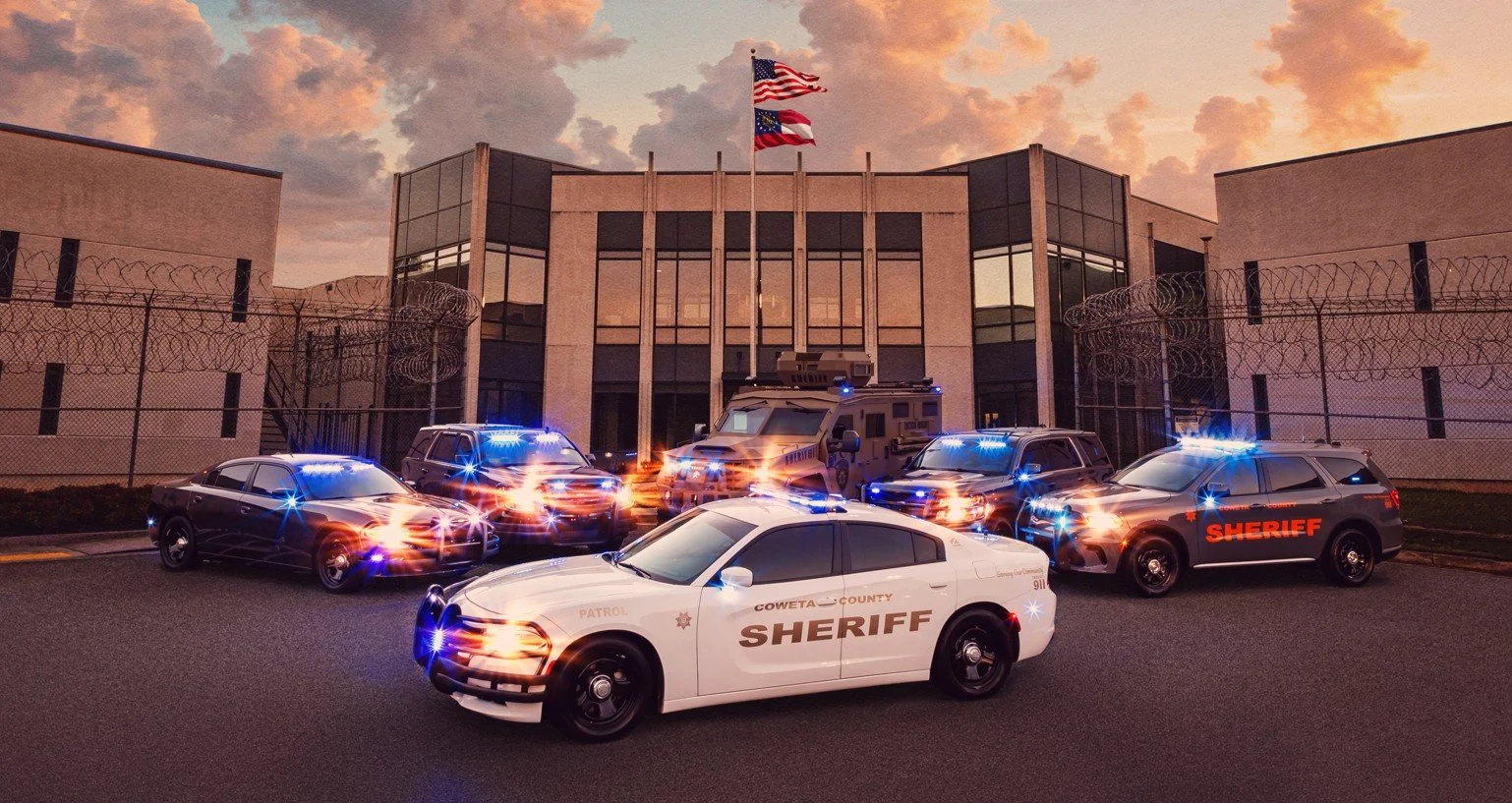Crime Rates in Coweta County, GA: What You Need to Know
Thinking about moving to Coweta County, GA, or just curious about the safety of your neighborhood? While Coweta County is known for its family-friendly communities, excellent schools, and easy access to Atlanta, not every area is created equal when it comes to crime. Understanding local crime rates can help you make smarter decisions—whether you’re buying a home, raising a family, or simply exploring the community.
In this guide, we break down crime trends, compare neighborhoods, and provide insights you won’t want to miss. From the safest southern towns to the busier city center of Newnan, you’ll get the full picture of what it’s like to live here—and how to protect your family and investment.
Overall Safety in Coweta County
According to CrimeGrade.org, Coweta County receives an overall A grade for safety, ranking in the 85th percentile nationwide. This means it is safer than 85% of U.S. counties.
Annual crime rate: ~19.79 crimes per 1,000 residents
Chances of being a victim:
West areas: 1 in 32
South areas: 1 in 100
Annual crime incidents:
Central Coweta: ~855
Southern Coweta: ~55
(Source: CrimeGrade.org)
Cost of Crime in Coweta County
Another way to look at crime is by cost—both tangible and intangible.
Total projected cost (2025): ~$50.2 million
Per resident: ~$336 per year (lower than Georgia average of $450 and U.S. average of $464)
Per household: ~$920 per year
(Source: CrimeGrade.org)
Violent Crime in Coweta County
Violent crime is tracked separately, showing more nuance in safety.
Violent crime rate: 4.24 per 1,000 residents
Grade: C (slightly worse than the national average)
Percentile: 39th percentile—safer than only 39% of counties nationwide
By location:
West Coweta: ~1 in 128 chance of violent crime
South Coweta: ~1 in 516 chance
Annual incidents:
Central Coweta: ~201
Southern Coweta: ~11
(Source: CrimeGrade.org)
Comparing Neighborhoods in Coweta County by Crime
Crime data shows that where you live in Coweta County makes a big difference:
Southern Coweta County (Sharpsburg, Senoia, and rural southern neighborhoods):
Safest part of the county
Lowest crime rate (~1 in 100 chance of being a victim)
Fewer than 60 reported crimes annually in some areas
Western Coweta County (bordering Carroll County and I-85 corridor):
Higher concentration of crime, especially property crime
Crime rate closer to 1 in 32 chance of being a victim
Central Coweta County / Newnan city area:
Higher annual incident count (~855 reported crimes per year)
Mix of property and violent crime due to denser population and commercial areas
Still safer than many metro Atlanta areas, but higher than the county average
Takeaway:
For families and retirees looking for peace of mind, southern Coweta County and Senoia stand out as the safest. For those wanting access to shops, restaurants, and downtown amenities, central Newnan offers convenience but comes with slightly higher crime rates.
Crime Explorer Data (2019–2023)
According to CrimeExplorer.com, here’s a breakdown of crime rates in Coweta County compared to national averages:
Violent Crime: 38.4 per 100,000 residents (national average: 106.2) – Grade: A
Property Crime: 61.8 per 100,000 residents (national average: 163.6) – Grade: A
Rape: 8.3 per 100,000 residents (national average: 3.5) – Grade: F
Aggravated Assault: 15.1 per 100,000 residents (national average: 22.3) – Grade: B
Key takeaway: Overall violent and property crime rates are much lower than the national average, but rape rates are higher than average and deserve attention.
(Source: CrimeExplorer.com)
Crime Trends Over Time in Coweta County
Looking at long-term patterns helps understand whether crime is improving or worsening.
2014: Violent crime rate was lower by about 28.1 crimes per 100,000 residents than today
2022: Violent crime reached 232 incidents per 100,000 residents
Trend: Gradual increase in violent crime over the past decade, though still below many metro Atlanta counties
Property Crime Trend:
Property crime has declined slightly over the past decade
Improvements in community policing, neighborhood watch programs, and suburban growth have helped
Interpretation:
While violent crime has seen an uptick, Coweta County remains safer overall than many nearby counties. The property crime decline shows progress, and violent crime numbers—though up—are not alarmingly high.
(Source: DataUSA.io)
What This Means for Residents and Homebuyers
The Good:
Coweta County overall is safer than most U.S. counties
Property crime is significantly lower than state and national averages
Southern Coweta and Senoia consistently rank among the safest areas
The Concerns:
Violent crime is slightly higher than national averages in some reports
Certain crime categories (like rape) exceed U.S. averages
Central and western Coweta experience higher incident counts than the south
Final Thoughts
Coweta County remains a safe and desirable place to live, especially compared to many other Georgia counties. Property crime is low, violent crime is manageable, and the overall cost of crime is below state and national averages.
For those considering a move, location within the county matters—southern areas are among the safest, while central zones see more incidents.
If you’re thinking about moving to Coweta County or Newnan, GA, review crime maps, check neighborhood stats, and speak with local experts who understand both the real estate market and community safety trends.
When it comes to buying or selling real estate in Newnan and Coweta County, trust the Tim Stout Group with eXp Realty. Our team knows the neighborhoods, the market, and what matters most to families making a move. Contact us by clicking HERE!



